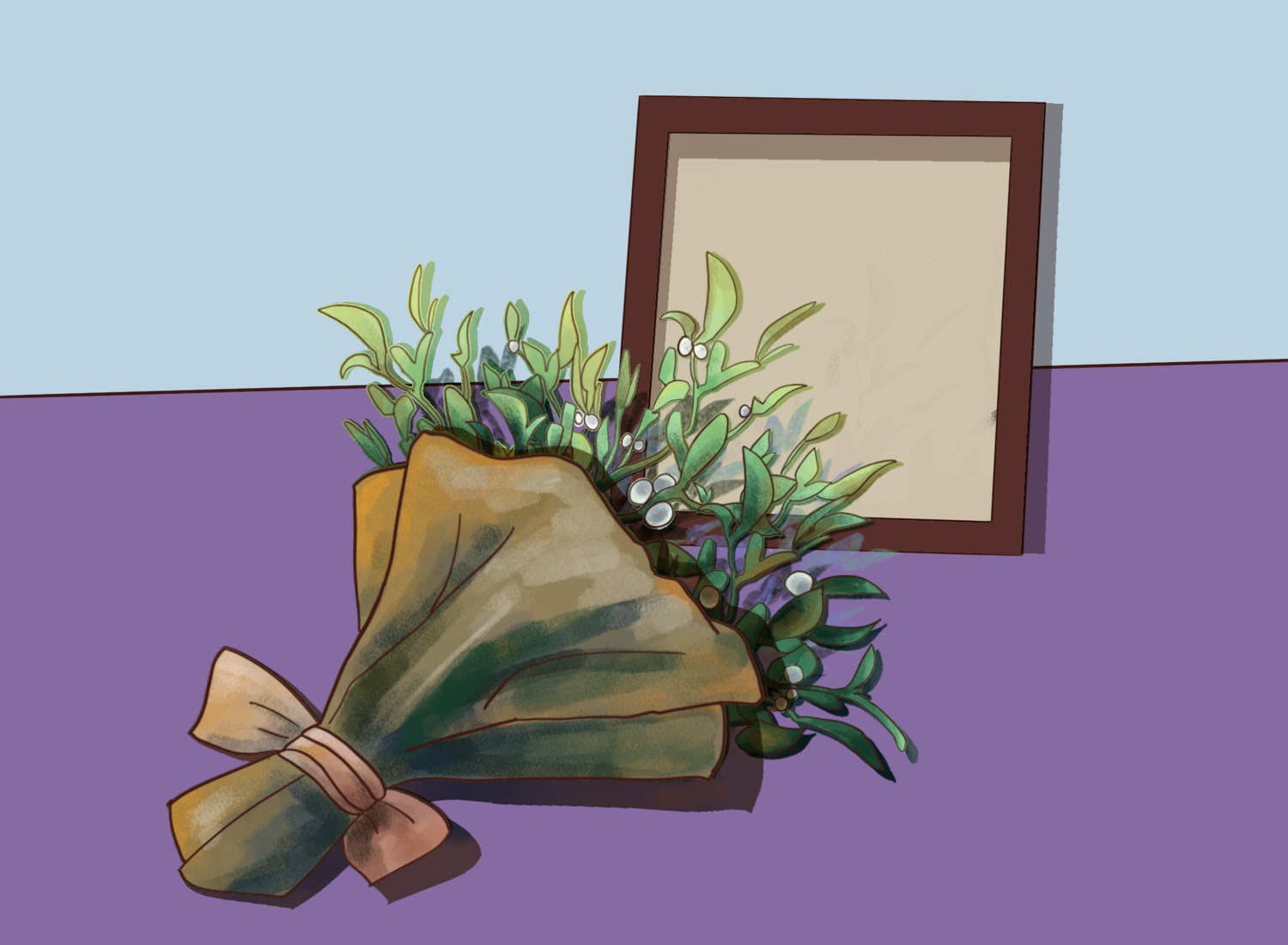Planting a Seed
Loss is something planted and picked like flowers. It is a blank base for a full bouquet of feeling. Love grows and nestles itself inside, adding vibrancy and bright shades of color. Tie everything up neatly with a ribbon of regret, and it’s the appropriate arrangement to send to the funeral home.
On Sept. 5, 2007, my family accepted hundreds of flowers that softly conveyed sentiments of sympathy, regret, and sorrow. Bouquets were fastened tightly with perfect bows — proof of the sadness that would dissipate from others eventually but remain forever in the hearts of those accepting the support and gifts.
Faced with the loss of my father four days prior, I found that his suicide left me and my family with the condolences of others and melancholy of our own. At 14 months old, I began mourning and grieving a man I barely knew.
Each year, the anniversary of his death comes and goes. Sadness cascades like a heavy rainfall, a deluge that slowly falters into sporadic showers. The flowers usurp the nourishment they need to grow, though eventually wilting from the intensity of the downpour. Finally, a seasonal drought comes, life gets busy, and we forget the burden of carrying umbrellas and jumping over puddles to reach our destination. The flowers dry up and we remember to water them again, this time the rain making a soft return.
At times, it can feel burdensome to replant and water flowers. To take such good care to nourish them when they grow improperly or are destroyed by the weather. While outside forces are uncontrollable, the way a seed is cared for is dependent on its ability to bloom.
Seventeen years since my father’s passing, I have watched my family replant and grow, learning to live without a brother, son, uncle, and nephew. I see their smiles, hear their laughs, and share hugs long after the loss that remains close to their hearts. Forget-me-nots have been planted in the space he once occupied, ensuring that the pain we have felt is proof of love’s existence.
But unlike the rest of my family, I never had to replant — only start from a simple seed. I was deprived of the chance to know my dad as more than a photo in a frame or a grainy video taken on a camcorder. My sadness is rooted in the “what-ifs” and the “I wish he was here to see this.”
It seems unfair to say I love someone who I never knew completely. It’s hard to understand how it could even be possible. I have no evidence, no explicit reason why I should love him aside from the blood we share and his undeniable part in giving me life. Yet, I do love my dad and I miss the chance I had at being his daughter, blooming in his image.
The potential of a life with my dad on earth exists in an alternate reality for me, like planting tulips on the moon. But his life is tangible, made flesh through the memories of my family. While I may not remember personal details, my family has kept him alive through sparkling stories and tender remembrances. They planted the seed in me and continue to water it by nurturing his memory through words.
I love my dad because I know him in a way I never considered possible. There is no rule stipulating complete knowledge of a person in order to love them. We like people because of what we already know about them; we love them regardless of what we don’t.
What I have come to realize in my years mourning a death I never truly grasped is that grief is specific to the individual it inhabits. Whether a person loses a friend, grieves a past version of themselves, or regrets not spending more time with a loved one before their passing, one truth is common among each feeling: They are rooted in love and proof of joy.
My family remembers a man they knew and loved. I grieve for a potential father. Neither invalid nor incorrect — only different in their physical manifestations of pain and sorrow. I will never understand the sadness of my family’s loss, and they will never feel my hurt in missing the opportunity to call someone “Dad.”
We all lost the same man, and we all loved the same man. But we all miss a different person.
Like a blossoming seed, grief is not a burden, instead a continuation of love. A souvenir of sorts. I imagine a bouquet sitting on his headstone, inscribed with a Robert Frost poem about the ability to make our own choices.
I choose to love my dad. I choose to grieve him despite being deprived of truly knowing him.
The flowers that inundate the funeral home are proof of appreciating the person that’s gone, proof of loving them and acknowledging them in their death.
Grief doesn’t pass away like people or wilt like flowers in a deluge or drought. Its persistence is truth, a disguise for love.
— Magazine writer McKenzie E. Lemmo can be reached at mckenzie.lemmo@thecrimson.com.



